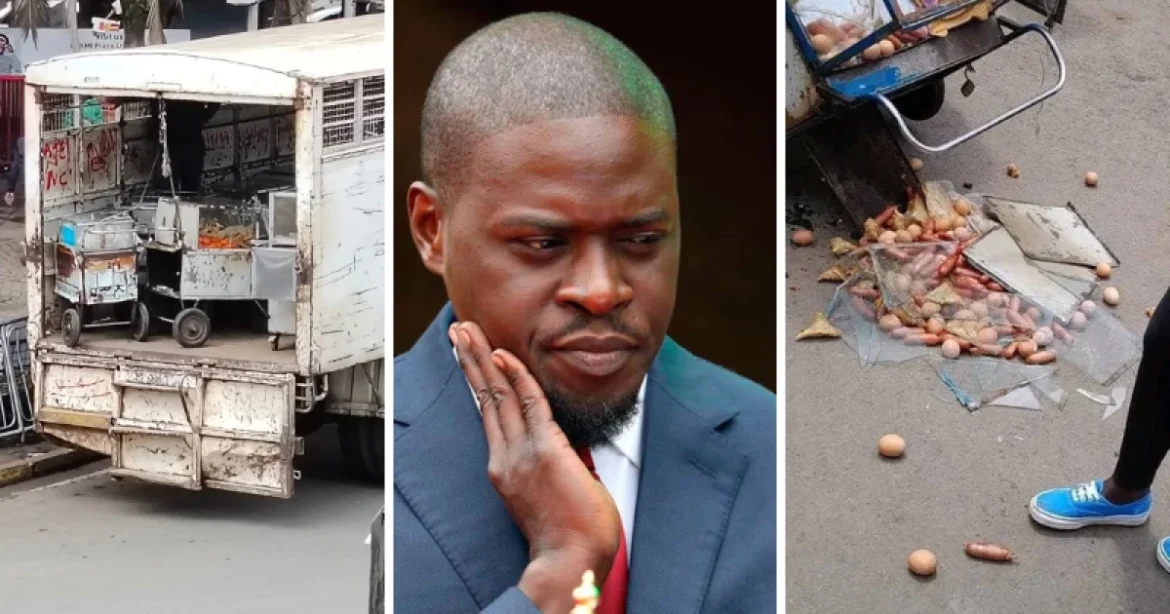Nairobi Governor Johnson Sakaja finds himself at the center of a heated controversy just a day after issuing a directive to arrest those caught filming city enforcement officers, commonly known as ‘kanjos’. The directive, which has sparked widespread debate and concern among citizens, was met with outright defiance by vocal activist Jerotich Seii.
Seii, known for her outspoken stance on governance issues, took to Twitter to challenge the governor’s orders. In a bold move, she posted a video allegedly showing city officers accepting bribes from construction cartels.

Jonson Sakaja when he appeared before a parliamentary commitee
Accompanying the video, Seii’s message to Governor Sakaja was clear: “We have disobeyed your orders not to film or photograph your Kanjo people while going about their business. Please see your guys receiving their daily bread (bribe) from the construction cartels. Come after me, basi. Oops! You already did. You’re welcome.”
This incident has left Governor Sakaja with a proverbial egg on his face, especially considering his previous turnaround in 2023 when he was forced to apologize to street vendors harassed by Kanjos. At that time, he compensated the vendors and promised to take disciplinary action against the officers involved.

Johnson Sakaja gestures as he delivers speech during the burial ceremony in Nyeri
The current situation raises questions about the transparency and accountability of city officials and the freedom of the press. The governor’s order to arrest those filming kanjos was already controversial, as it appeared to be a reversal of his earlier stance encouraging citizens to record any illegal activities.
As the story unfolds, the public eagerly awaits Governor Sakaja’s response to this latest development. Will he uphold his directive and take action against Seii, or will he once again backtrack in the face of public outcry? This incident not only challenges the governor’s authority but also puts the spotlight on the ongoing struggle for justice and transparency in Nairobi’s governance.



